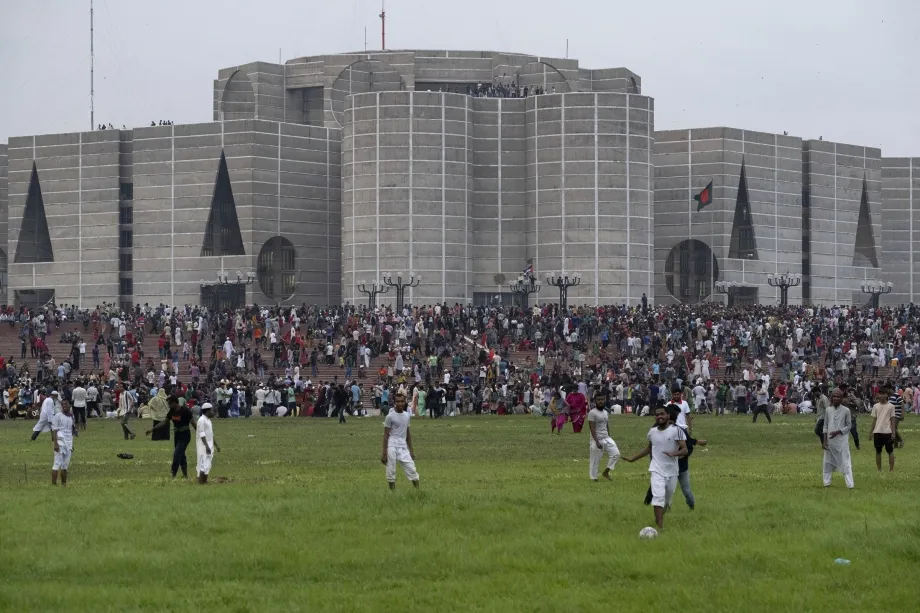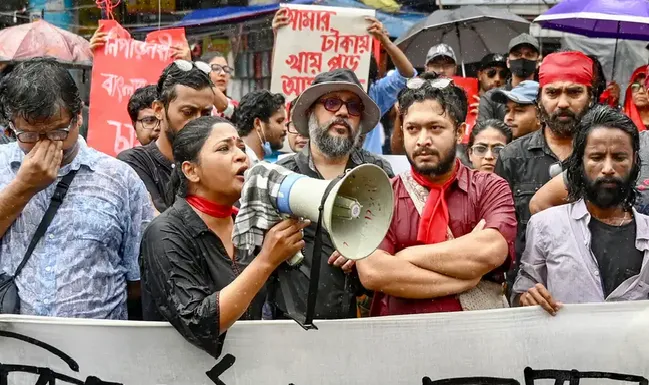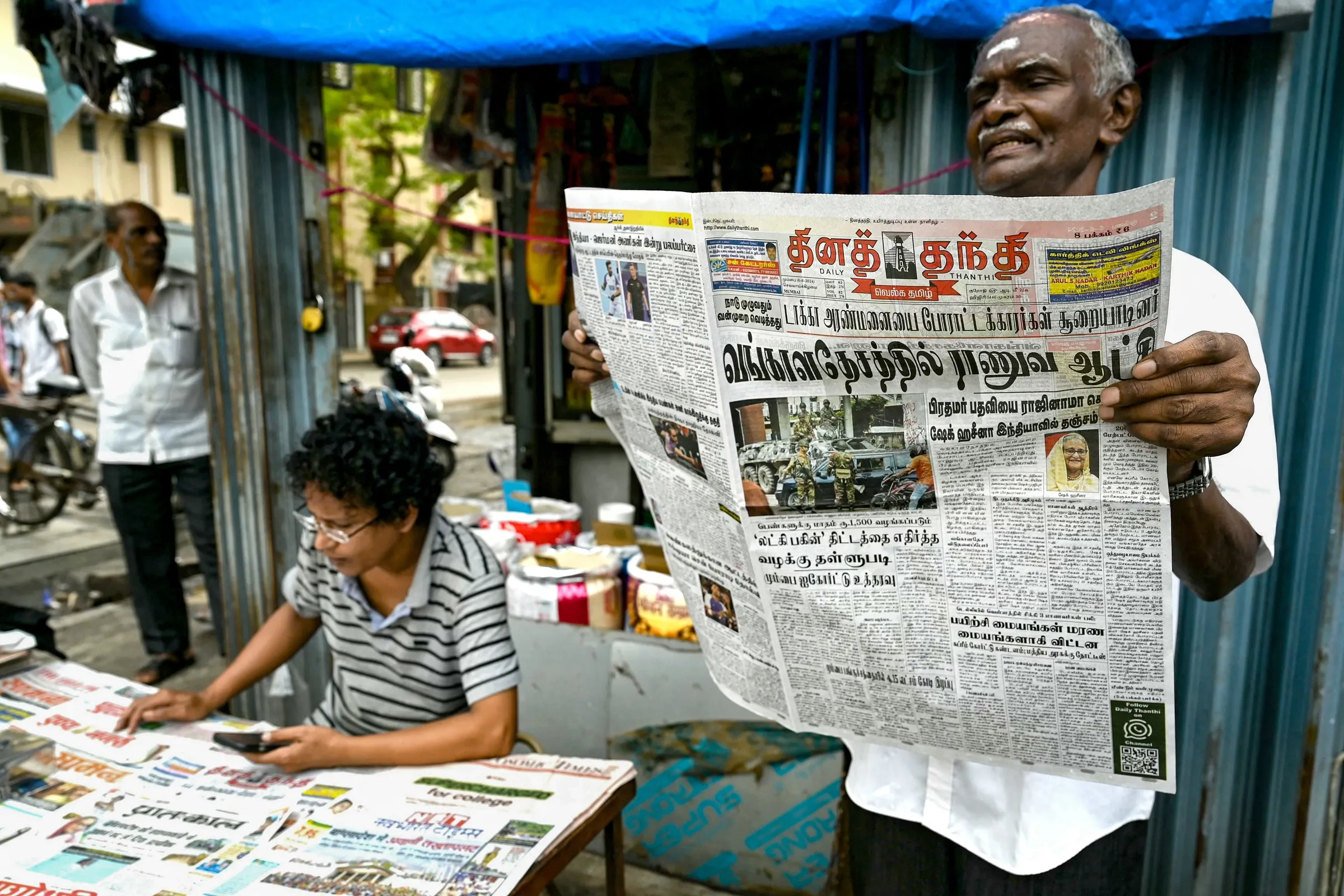
Bangladesh’s Mood After Prime Minister’s Resignation
The capital city of Dhaka has returned to a peaceful state, with citizens hopeful for a brighter future following a wave of violent protests that led to the resignation of Prime Minister Sheikh Hasina.

One day after the military took control of Bangladesh and Prime Minister Hasina resigned and left the country by helicopter, the parliament building in Dhaka was filled with people celebrating.
The protest movement against Hasina’s government had been ongoing for over a month, with clashes between protesters and police resulting in at least 422 deaths.
“Freedom has come to the younger generation,” said Parvez Hossain, a 30-year-old student, amid the crowd on August 6th at the parliament square, which was devoid of lawmakers after the parliament was dissolved. Hossain expressed hope for a fresh start and a brighter future. “Now we have reclaimed freedom for Bangladesh,” he said. “We want to rebuild the country in a new way.”
The unrest began the previous month with student marches protesting government job quota policies, escalating into large-scale demonstrations calling for Hasina, who had been in power since 2009, to step down.
Despite the turmoil, the streets of Dhaka remained bustling, with businesses operating as usual, indicating that the capital had returned to its normal rhythm. However, concerns about security persisted, as at least 10 people were killed on August 6th.
Headquarters of the ruling Awami League were set ablaze, and homes of Hasina’s close associates were looted, highlighting the level of violence during the chaotic end of her 15-year rule. Some took the opportunity to retaliate against the police, accusing them of using deadly force against protesters.

The police union announced a strike on August 6th “until the security of all members is assured.” The union also apologized for the actions of officers against the protesters.
With the police on strike, citizens managed traffic themselves. Students directed traffic at intersections.
Nazrul Islam, a 60-year-old working in the pharmaceutical industry, noted that the student protests sparked an “unstoppable” wave of public dissent against the government. “Anger had been building up for a long time,” he said.
Some businesses and homes belonging to Hindus, a minority considered close to Hasina in the predominantly Muslim nation, were also attacked. Bangladeshi human rights groups, along with U.S. and European Union diplomats, expressed concern on August 6th over reports of attacks on religious, ethnic, and minority groups.
Bangladesh’s new leadership is relying on the military, which controls the country and supports the formation of an interim government. Regardless of the future, Nurul Islam, a 60-year-old rickshaw driver, was glad to see Hasina go.
“The people haven’t had any peace in the last 15 years,” he said while taking a break on a crowded street.



